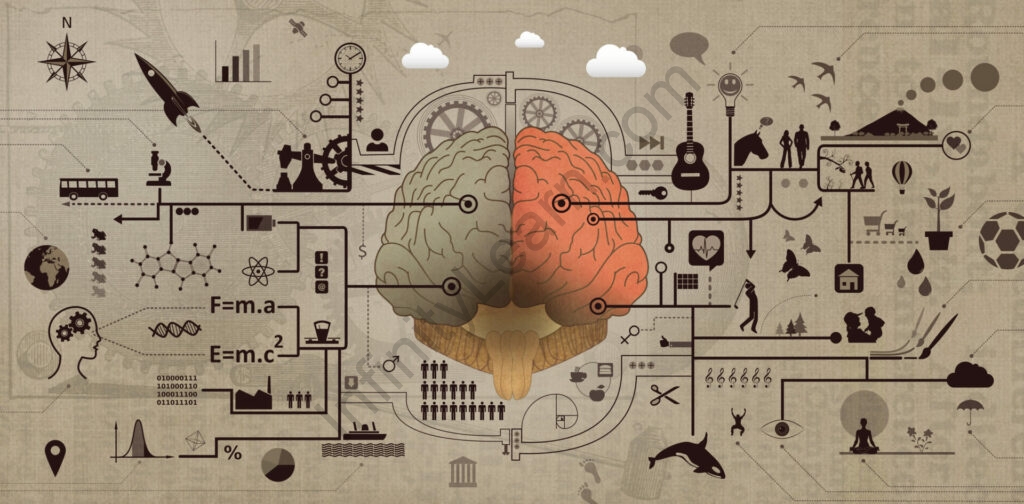Table of Contents

In the fast-changing world, the ability to think critically and clearly is the need of the hour. Each day allows us to venture into the unknown and unthinkable realm of possibilities to foresee beyond tactical constraints, which becomes challenging at some point. To look at such daring situations in the eye and move ahead with ambitions and goals to accomplish is what adds color to the monotony of nothingness. How to refine your thinking for a better outlook is where critical thinking comes in.
What is Critical Thinking?
- Critical thinking is the skill to think, understand, imagine with clarity and rationality, to acknowledge the logical connection between ideas.
- It allows you to engage in reflective and independent thinking. It requires you to use your abilities to reason.
- Critical thinking is about being an active scholar as well as a learner rather than an inactive recipient of information.
Something about critical thinkers
Critical thinkers rigorously challenge notions and beliefs rather than adopting them at their face value. They always strive to discern whether the ideas and arguments show an entire picture or not and are open to discussing wherever they go wrong. They recognize, analyze and comprehend the problem and solve them systematically rather than depending on their instincts and intuitions.
Critical thinking is a way to think about whatever occupies your mind so that you can reflect upon your thoughts and come to the best possible conclusions. It is the art of thinking about how to think and what not to think.The hustling routines of life have shifted critical thinking ability on the backfoot. To apply the reasoning abilities in the day-to-day tasks we need to practice it more.
How Critical Thinking helps?
Critical thinking helps you in many ways:
- Critical thinking enhances and expands decision-making, evaluating the validity of an argument and the possible impact it could have.
- It enables you to form your viewpoints on a subject and establish your personal code of conduct and confidence.
- Critical thinking allows you to engage in any discussion on a deeper and more intellectual level with your colleagues and supervisors to establish stronger working relationships.
- It encourages you to evaluate your own work to deduce ways to augment the quality and efficiency of your performance.
- Critical thinking develops better comprehension and reading skills.
Also read: How to Improve Reasoning Skills
How to develop critical thinking?
- Identification of the question you have to ask and specifications about the answer you will be providing.
- By Organizing and collecting information to illustrate different perspectives and viewpoints critical thinking can be cultivated. Specific information at hand will ensure you do not create biases by only presenting information that supports your personal views
- A brief analysis of the data and sources enhances the credible and reliable evaluation of your information sources.
- Presenting significant data allows you to address the problem at hand. It helps to filter the relevant information to make an informed decision.
- Based on the evidence you can come to an effective conclusion, thus making a firm decision in times of crisis.
- Critical thinking can also be developed by presenting final decisions to the stakeholders, which can be achieved through effective communication.
How to Improve Critical Thinking?
Critical thinking ability can be improved by following methods:
- Becoming self-aware. Considering your thinking techniques, values, morals, principles, and code of conduct will help you to become more aware of your thought patterns. When you assess your beliefs, you reflect on the values you believe in. It helps to objectively evaluate your choices. Once you reflect upon your notions you get to understand your strengths, weaknesses, and biases better. It allows you to understand your approach to a specific situation from a certain perspective.
- Understanding of your thought process. Observation and evaluation will allow you to understand your information processing better. To become mentally efficient and competent in the workplace, understanding, interpreting, and reacting to the information your thoughts receive is vital to maintain job efficacy.
- Formulate foresight. Contemplate how others might feel about the decision you make. Predict the probable consequences of a situation and what might change, positively and negatively. To foresee is to predict how your decisions at work will produce reactions and affect relations, which will help you to make the right choice.
- Become an active listener. Active listening is an establishment of practical and logical thinking. Be attentive to what your peers have to say. Be empathetic and focused contemplating their perspectives. Try to have a productive conversation.
- Never hesitate to ask questions. It is better to ask when you’re not able to put up with the discussions. Consider rephrasing the points in your own words to make sure you’ve accurately understood them. Ask follow-up questions to clarify the misheard or missed details. This is a crucial step that can help you assign purpose and value to a piece of information.
Frequently asked questions:
1. Does excessive critical thinking torment the thinker?
Ans:It depends on the intensity of your thinking capacity. If you keep thinking about things, so definitely you will start to live in your imaginary world of questions and your social attitude may turn to an investigative one, which is not highly regarded and people may call you cranky.
2. Do we need to develop an environment to become good critical thinkers?
Ans: Not exactly. To become a good critical thinker you have to be more aware and empathetic to the thoughts of others as well as yours. Formulating an environment is not a necessity.
2. An inquisitive attitude leads to critical thinking. Is that true?
Ans: An inquisitive attitude fosters critical thinking. It helps us to become better at it.





